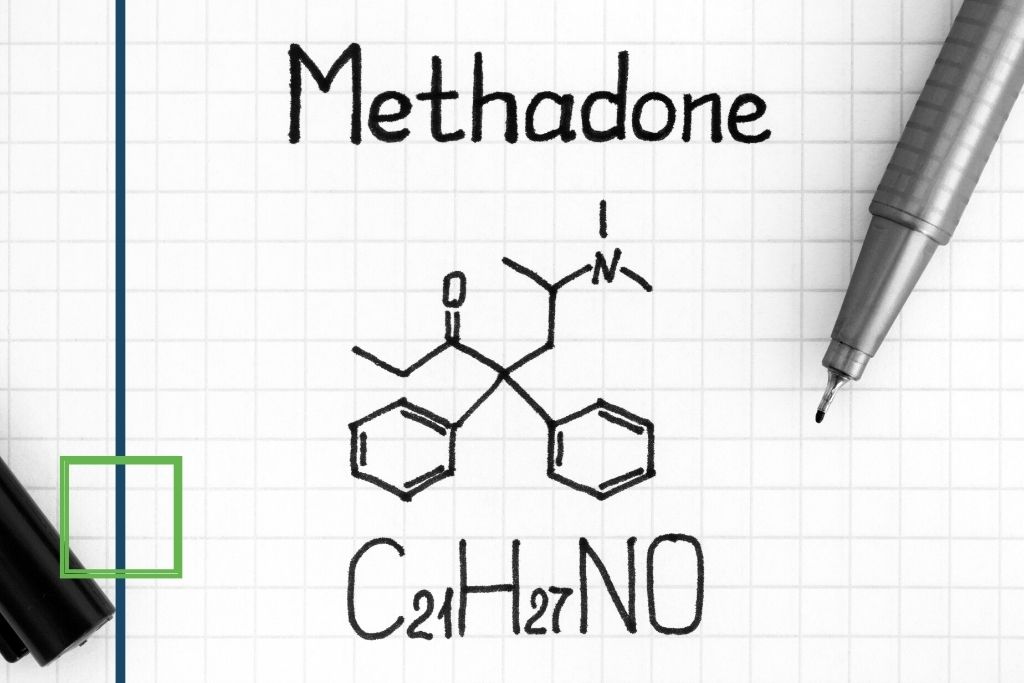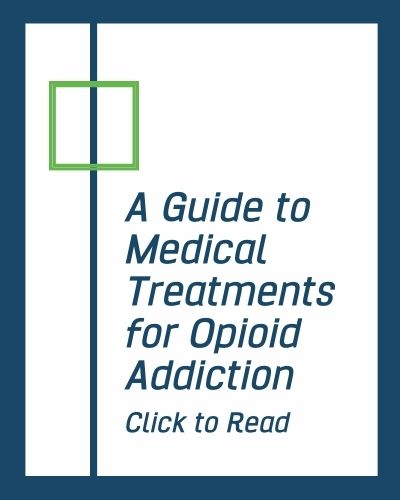Understanding What is Methadone & Why is it Prescribed?
Methadone is a long-acting synthetic opioid pain killer that is often used to relieve severe pain for someone expected to need pain medication around the clock for a long time and cannot be treated with other medicines [1]. This drug is also used to prevent withdrawal symptoms in individuals addicted to opiate drugs and are enrolled in addiction treatment programs to stop using or continue not using the drugs.
Methadone is in a class of medications called opiate (narcotic) analgesics. It works to treat pain by changing the way the brain and nervous system respond to pain. Methadone works to treat people addicted to opiate drugs by producing similar effects and preventing withdrawal symptoms in people who have stopped using these drugs. When taken as prescribed, this opioid pain killer can be very useful in treating heroin addiction, but it too can be addictive, as it is still an opiate [2].


Get Your Life Back
Find Hope & Recovery. Get Safe Comfortable Detox, Addiction Rehab & Mental Health Dual Diagnosis High-Quality Care at the We Level Up Treatment Centers Network.
Hotline (877) 378-4154Understanding What is Methadone & How It Works
Methadone works by changing how the nervous system and the brain respond to pain. It reduces the painful symptoms of opiate withdrawal and blocks the euphoric effects of opiate drugs such as morphine, heroin, and codeine, as well as semi-synthetic opioids like hydrocodone and oxycodone.
The opioid-dependent patient takes a daily dose of methadone as a liquid or pill. Pain relief from a dose of methadone lasts about four to eight hours. According to the Substance Abuse and Mental Health Service Administration (SAMHSA) [3], methadone is effective in higher doses, especially for heroin users, helping them stay in treatment programs longer.
As with medications used in medication-assisted treatment (MAT), methadone is usually prescribed as part of a comprehensive treatment plan for opioid and opiate addiction that includes counseling and participation in social support programs.
It is important for people with methadone prescriptions to take this medication exactly as prescribed and do not adjust their own dose without a doctor’s advice and oversight. It is easy to overdose on methadone due to the strength of one dose. Methadone and Suboxone are both opioids. While methadone is used to treat chronic pain and opioid addiction, Suboxone is only approved to treat opioid dependence.
Understanding What is Methadone & How it’s Related to Opioid Misuse
To understand what is methadone and why methadone treatment works, it is important the physiological basis of heroin addiction. According to the National Institute on Drug Abuse (NIDA) [4], individuals with opioid addiction who follow methadone detox with complete abstinence are very likely to relapse or return to using the drug. Although relapse is a normal occurrence on the path to recovery, it can also be life-threatening because it increases the risk for a fatal overdose. Thus, an important way to support recovery from heroin and prescription opioid use disorder is to maintain abstinence from those drugs.
A person in recovery can also use medications that reduce the negative impact of cravings and withdrawal without producing the euphoria that the original drug of abuse caused.
The statistics related to opioid and opiate addiction will give you a better understanding of the answer to the question, “what is methadone”. It will also explain the importance of methadone doctors.
Opioid medications, such as methadone bind to the brain’s regions that regulate pain. An increase in dopamine is the next reaction that takes place in the brain. Dopamine is the “feel-good” hormone, and you can now understand why people get addicted to opioids, such as heroin, morphine, oxymorphone, and codeine.
- According to the Substance Abuse and Mental Health Service Administration (SAMHSA) [5]:
- Approximately 10.3 million people in the US misused opioids in 2018
- Around 9.9 million out of that 10.3 million were prescription drug users
- About 47,600 deaths occurred in the U.S. in 2017 by opioid overdosing
A devastating number of 130 people die every day from opioid-related drug overuse.
What can you conclude from the above statistics? Are you misusing any opioids? Have you reached a point where you realize there’s an addiction to any pain relievers? Now is the right time to find an addiction treatment facility or talk to an addiction recovery specialist. Taking this step is highly advisable to save yourself or a loved one from such substance use disorders.
Understanding What is Methadone & Who Can or Who Cannot Use It?
Adults (aged 18 years and over) can take methadone for opioid drug addiction treatment.
It can also be prescribed and administered by doctors to newborn babies in the hospital, to help with heroin or methadone withdrawal symptoms.
Methadone may not be suitable for some individuals. Tell your doctor before starting methadone treatment if you:
- Have a lung problem or breathing difficulties
- Have had an allergic reaction to methadone or any other medicines in the past
- Have seizures or fits
- Are addicted to alcohol, or other drugs that are not opioid
- Have problems with your adrenal glands, thyroid, kidneys or liver
- Have a head injury or get bad headaches
- Have ulcerative colitis
- Have low blood pressure or heart rhythm problems (arrhythmia)
- Have myasthenia gravis (a rare condition that causes muscle weakness)
- Are breastfeeding, pregnant, trying to get pregnant
Get Help. Get Better. Get Your Life Back.
Searching for Accredited Drug & Alcohol Rehab Centers Near You? Or Mental Health Support?
Even if you have failed previously, relapsed, or are in a difficult crisis, we stand ready to support you. Our trusted behavioral health specialists will not give up on you. Call us when you feel ready or want someone to speak to about therapy alternatives to change your life. Even if we cannot assist you, we will lead you wherever you can get support. There is no obligation. Call our hotline today.
FREE Addiction Hotline – Call 24/7Understanding What is Methadone’s Common Side Effect
With short-term use, you may experience side effects like:
- Restlessness
- Vomiting or Upset stomach
- Slow breathing
- Itchy skin
- Heavy sweating
- Constipation
- Weight gain
- Dry mouth
- Sleep changes
- Appetite changes
- Headache
- Stomach pain
- Flushing
- Vision problems
- Mood changes
Understanding What is Methadone’s Serious Side Effect
Some side effects are more serious. Call the doctor if you have:
- Trouble breathing
- Fainting or lightheadedness
- Rash or hives
- Swollen tongue, lips, throat, or face
- Rapid heartbeat or chest pain
- Confusion or hallucinations
- A hoarse voice
- Trouble swallowing
- Seizures
- Severe drowsiness
- Unusual menstrual periods
What is Methadone Overdose?
Methadone overdose happens when a person intentionally or accidentally takes more than the recommended or normal amount of this medicine. This can be on purpose or by accident. Make sure to let your doctors know about any medications you’re taking.
Even though the effects of methadone are different from those of other opioids, such as heroin, your body can still get used to it. This means you might need to take more methadone to feel the same effects. This is called tolerance, and it can happen with any other opioids.
Your body can also become dependent on this drug and other opioids. Your brain relies on the pain relief they bring, and you have withdrawal symptoms if you stop taking them suddenly. Methadone may be packaged and sold under the brand names Methadose, Dolophine, or Physeptone.
Some people may take methadone with other opioid pain killers, such as oxycodone. High doses or combining methadone with other drugs or painkillers can raise someone’s risk of overdose. These painkillers include oxycontin, hydrocodone (Vicodin), or morphine.
Symptoms of Methadone Overdose
- Vomiting
- Convulsions
- Slow, shallow breathing, known as respiratory depression
- Clammy or bluish skin
- Blue-tinted lips and fingertips
- Extreme fatigue to the point of being unable to stay awake
- Stupor
- Coma
- Death
Combining methadone with other drugs, whether illegal or prescription drugs, can also lead to serious heart problems. These heart problems range from arrhythmia to heart attack.
How Much Methadone Causes an Overdose?
You may wonder how much methadone can lead to an overdose. Just like with many other drugs, individuals can have a range of reactions to methadone. This makes it difficult to say how much of this drug it takes to overdose, as it changes based on factors like a method of use, and tolerance.

The danger with methadone comes from toxic dosing or taking more than prescribed. Therefore, this medication should always be monitored by a doctor, especially when it is being used to treat heroin addiction.
The amount of methadone that is deadly for a person will depend on tolerance, or the amount their body is accustomed to having. A standard therapeutic dose of methadone is 60 milligrams per day. Sometimes, people find effective treatment with a lower dose.
Regardless of the individual dose, many individuals end up getting addicted to methadone. This could lead someone to use methadone with other opioids. When someone is addicted to more than one substance, the risk of overdose increases.
What is Methadone Overdose & How to Prevent It?
- Take the medication exactly as prescribed by your doctor.
- Do not mix methadone with substances such as alcohol or street drugs.
- Do not crush methadone to inject or snort it.
- When using methadone for pain management, use a medication reminder box and have someone check to ensure doses are taken correctly.
- Know the signs of methadone overdose and immediately contact 911 if you suspect a problem.
- Obtain a naloxone kit, also called a Narcan kit, which is an injectable opioid antidote that can save the life of a person overdosing on narcotics. Narcan is also available as a metered nasal spray formulation.
First-class Facilities & Amenities
World-class High-Quality Addiction & Mental Health Rehabilitation Treatment
Rehab Centers TourRenowned Addiction Centers. Serene Private Facilities. Inpatient rehab programs vary.
Addiction Helpline (877) 378-4154Proven recovery success experience, backed by a Team w/ History of:
15+
Years of Unified Experience
100s
5-Star Reviews Across Our Centers
10K
Recovery Success Stories Across Our Network
- Low Patient to Therapist Ratio
- Onsite Medical Detox Center
- Comprehensive Dual-Diagnosis Treatment
- Complimentary Family & Alumni Programs
- Coaching, Recovery & Personal Development Events
What is Methadone Addiction & How Long Does It Take to Get Addicted to It?
There is no standard length of time it takes to get addicted to methadone or other opioids. It depends on different factors, such as:
- The drug of abuse
- Length of abuse
- Genetics
- Personal history of substance use
Other risk factors can include:
- A family history of substance abuse
- Stressful circumstances
- Contact with high-risk people
- History of criminal activity
Addiction can develop quickly in some people and slowly in others.
What is Methadone Withdrawal?
Since methadone was originally designed for use in treating heroin addiction, and it is used in treating all kinds of opioid addictions, methadone withdrawal is less severe and does not set in as quickly as with other opiates.
This is because methadone stays in the body in some form for 1-3 three days. Though less severe, withdrawal symptoms from methadone are similar to withdrawal symptoms from other opioid drugs.
Common Causes of Methadone Withdrawal
- Incorrect or Inadequate Dosing
- If someone does not take enough methadone, they may experience withdrawal from the opioid for which methadone is being taken as treatment.
- Suddenly Quitting Methadone
- Slowly tapering the dosage of methadone could limit the risk of withdrawal symptoms.
- Taking Certain Medications with Methadone
- Some other medications may reduce the effectiveness of methadone. These include, ritonavir, phenobarbital, phenytoin, carbamazepine, and drugs such as potassium.
- Self-Medication
- Individuals should only take methadone if a specialist has prescribed it to them. Self-medication with this drug is dangerous and increases the risk of dependence, overdose, addiction, and withdrawal if a person stops taking it abruptly.
World-class, Accredited, 5-Star Reviewed, Effective Addiction & Mental Health Programs. Complete Behavioral Health Inpatient Rehab, Detox plus Co-occuring Disorders Therapy.
CALL (877) 378-4154End the Addiction Pain. End the Emotional Rollercoaster. Get Your Life Back. Start Drug, Alcohol & Dual Diagnosis Mental Health Treatment Now. Get Free No-obligation Guidance by Substance Abuse Specialists Who Understand Addiction & Mental Health Recovery & Know How to Help.
Symptoms of Methadone Withdrawal
- Sweating
- Watery eyes
- Runny nose
- Fever or chills
- Tremors or shaking
- Muscle aches
- Nausea or vomiting
- Loss of appetite
- Anxiety or irritability
- Diarrhea
- Depression
- Restlessness
- Insomnia
- Tachycardia
Find the Right Addiction Treatment at We Level Up NJ

While methadone can definitely offer a number of benefits when used as prescribed in a medical setting, it can also result in side effects. Some of the most dangerous side effects are the risks of dependence, withdrawal, overdose, and addiction.
What is methadone, and why are you or your loved one got addicted to it? What help is available, and is it safe? To answer all your questions, contact us today at We Level Up NJ Treatment Facility. We provide utmost care with doctors and medical staff available 24/7 for life-changing and lasting recovery. We provide an enhanced opportunity to return to a fulfilling and productive life[7].
Experience Transformative Recovery at the We Level Up Treatment Center.
See our authentic success stories. Get inspired. Get the help you deserve.



Start a New Life
Begin with a free call to an addiction & behavioral health treatment advisor. Learn more about our dual-diagnosis programs. The We Level Up treatment center network delivers various recovery programs at each treatment facility. Call to learn more.
- Personalized Care
- Caring Accountable Staff
- World-class Amenities
- Licensed & Accredited
- Renowned w/ 5-Star Reviews
We’ll Call You
Sources
[1] NIH – https://medlineplus.gov/druginfo/meds/a682134.html
[2] NCBI – https://www.ncbi.nlm.nih.gov/books/NBK310658/
[3] SAMHSA – https://store.samhsa.gov/sites/default/files/d7/priv/sma12-4108.pdf
[4] NIDA – https://www.drugabuse.gov/publications/research-reports/medications-to-treat-opioid-addiction/how-do-medications-to-treat-opioid-addiction-work
[5] SAMHSA – https://www.samhsa.gov/data/sites/default/files/cbhsq-reports/NSDUHNationalFindingsReport2018/NSDUHNationalFindingsReport2018.pdf
[6] What Is Methadone – https://www.justice.gov/archive/ndic/pubs6/6096/index.htm
[7] We Level Up – Heroin Detox